
![]()
To Conference Information Page ㅡ To Conference Event Page
The Schedule
[ Clicking on hyperlinked titles will take you to the respective abstracts and bios. ]
10:30ㅡ12:00 Reflective Practice Session (Room 81D)
Responding to Negative Feedback: Critically Reflecting on Beliefs and Goals
ㅡ Dr. Yeon-seong Park (Chonnam National University)
_____________________
13:10ㅡ13:50 PLENARY SESSION (Room 835)

Where Is “There” and Are We There Yet?
ㅡ Michael Griffin (The ELT Workshop & Chung-Ang University)
_____________________
TEACHING IDEAS Strand (Room 811)
14:00ㅡ14:45
Barcodes in Education (Especially QR and Data Matrix Codes)
ㅡ Jessica Magnusson
15:00ㅡ15:45
Error Correction Strategies, Techniques, and Activities for the EFL Classroom
ㅡ Scott Findlay
16:15ㅡ17:00
English Language Arts and Crafts
ㅡ Jeff Shelley
_____________________
PROFESSIONAL DEVELOPMENT & RESEARCH Strand (Room 813)
14:00ㅡ14:45
Privilege & Marginalization: Complex Identities of Foreign English Teachers
ㅡ Stewart Gray
15:00ㅡ15:45
A Holistic Approach to Evidence-Based Reflective Practice
Brennand Kennedy
16:15ㅡ17:00
Research in Korea: What Counts and Who Counts What?
Kevin Kester
____________________
DISCUSSION Strand (Room 81D)
14:00ㅡ14:45
Classroom Anthropology: An Exploration of Culture and Class Management
ㅡ Jeff Shelley
15:00ㅡ15:45
A (Hopefully Productive) Discussion on Native-Speakerism in Korea
ㅡ Michael Griffin
16:15ㅡ17:00
Teaching Content in the ESL Classroom
ㅡ Phillip G. Schrank, Maria Lisak, & Arlo Matisz
____________________
SOCIAL JUSTICE & CRITICAL PEDAGOGY Strand (Room 814)
14:00ㅡ14:45
Learning about Refugees from Syria & Yemen: Lesson Plans for Korean Learners
ㅡ Matkhiya Usmonova & Maria Lisak
15:00ㅡ15:45
Peacebuilding Education in Posttruth Times: Lessons from the Work of Betty A. Reardon (Research Report)
ㅡ Kevin Kester
16:15ㅡ17:00
Using Critical Language Pedagogy in the EFL Classroom
ㅡ Luis Roberto Caballero Orozco
____________________
17:15ㅡ18:00 FEATURED SESSION (Rppm 835)
What Are We Teaching For?!
ㅡ Jocelyn Wright (Mokpo National University)
________________________________________
[15:45ㅡ16:15] POSTER SESSIONS (Lobby)
Ready, Action! Implementing Story Drama into EFL English Classrooms
ㅡ Ahra Cho
Johnny and Joshua Coming to Korea
ㅡ EJ Asare
Game Making: Game Templates to Mix It Up in Class
ㅡ Maria Lisak
A to Z of Social Justice
ㅡ Social Justice Special Interest Group
Where Have We Been?
ㅡ David Shaffer & Bryan Hale
![]()
Presentation Abstracts & Presenter Biodata
.
10:30ㅡ12:00 Reflective Practice Session (Room 81D)
Responding to Negative Feedback: Critically Reflecting on Beliefs and Goals
ㅡ Dr. Yeon-seong Park
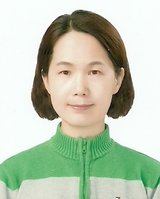 Instructors, teachers, and educators can be sensitive to any negative feedback from students, parents, or school administrators. After teaching your class with all your heart and skills, you hear, “Your class is useless and unhelpful.” How can we cope with this kind of situation?
Instructors, teachers, and educators can be sensitive to any negative feedback from students, parents, or school administrators. After teaching your class with all your heart and skills, you hear, “Your class is useless and unhelpful.” How can we cope with this kind of situation?
In this workshop, we will reflect on teacher beliefs of our own and check how they are related with the description of goals, objectives, and learning outcomes of the course we teach. Then, in a small groups, we will discuss if there is any way to improve in our ELT practices and principles.
Yeon-seong Park is a research fellow at the Institute of British American Studies, Chonnam National University. She earned her BA in English literature from Ewha Women's University, her MA from Seoul National University, and her PhD from Chonnam National University. In her teaching career, she taught such courses as Conversational English and Composition, Speech and Debate, and English Poetry. She is a life-time member of KOTESOL and serves as a research board manager of The Modern British and American Poetry Society of Korea . As well, she has given numerous presentations in several academic societies and published dozens of articles and books.
[TOP]
_______________
13:10ㅡ13:50 PLENARY SESSION (Room 835)
Where Is “There” and Are We There Yet?
ㅡ Michael Griffin
 In line with the conference theme, “Are We There Yet?” this plenary talk will begin with ideas on what could be meant by “there” for ELT in general and Korea specifically. The speaker will offer his ideas on what “there” could mean and share thoughts on both why we might and might not be “there” yet. Looking backwards and forwards from optimistic, pessimistic, and perhaps more realistic or balanced perspectives, we will consider the state of ELT in Korea and beyond.
In line with the conference theme, “Are We There Yet?” this plenary talk will begin with ideas on what could be meant by “there” for ELT in general and Korea specifically. The speaker will offer his ideas on what “there” could mean and share thoughts on both why we might and might not be “there” yet. Looking backwards and forwards from optimistic, pessimistic, and perhaps more realistic or balanced perspectives, we will consider the state of ELT in Korea and beyond.
Through weaving personal stories, outside opinions, data, anecdata, a few science-fiction references and, yes, road-trip metaphors, the speaker will give the audience a great deal to consider regarding the state of our field. A range of issues, including native-speakerism, racism, professional development, pedagogy (critical and otherwise), materials use, and teacher autonomy, will be addressed. The audience will be left to decide where ELT is and where it could be headed as a field.
Michael Griffin has been involved with English education for nearly 20 years. His first conference presentation was in 2009 at the KOTESOL International Conference, and since then, he has presented over 60 times, in 7 countries. Michael has worked as a teacher, teacher-trainer, trainer-trainer, online instructor, curriculum developer, substitute teacher, assistant director, and mentor. Intercultural awareness, world Englishes, curriculum development, teacher development, and reflective practice are some of his main interests. Michael currently teaches at Chung-Ang University in Seoul and does teacher education work online for World Learning and the New School. He blogs at http://eltrantsreviewsreflections.wordpress.com
[TOP]
_______________
14:00ㅡ14:45
Barcodes in Education (Especially QR and Data Matrix Codes)
ㅡ Jessica Magnusson
 Barcodes can be classified into 1D barcodes and 2D barcodes. A 1D or linear barcode is a series of vertical lines that represent a limited amount of data. These can be easily seen at stores, in libraries, on tickets, etc. In recent years, QR codes have become increasing popular in education. QR codes are one type of 2D barcode. Often considered an “upgrade” of 1D barcodes, 2D barcodes are generally square in shape and allow for various data types (URLs, images, contact information) to be encoded. When used appropriately in educational contexts, QR codes can open up worlds of possibilities to students and teachers. However, QR codes also have the potential to confuse and frustrate students and teachers, and alienate those who are not familiar with the technology or don’t have access to a smart device. To date, the primary use of QR codes in education has been to have students scan these codes with an app on a smart device such as a phone or tablet. Upon scanning a QR code, a resource such as a webpage, a video, a message, or an image will pop up on the student’s device. This can be a great application of this technology. However, there are other less explored uses of QR codes and data matrix codes (another type of 2D barcode) that can help teachers organize their teaching resources and create teaching materials. This presentation covers topics ranging from creating and scanning 2D barcodes to new approaches towards using this technology such as an attendance tracking system and QR code games.
Barcodes can be classified into 1D barcodes and 2D barcodes. A 1D or linear barcode is a series of vertical lines that represent a limited amount of data. These can be easily seen at stores, in libraries, on tickets, etc. In recent years, QR codes have become increasing popular in education. QR codes are one type of 2D barcode. Often considered an “upgrade” of 1D barcodes, 2D barcodes are generally square in shape and allow for various data types (URLs, images, contact information) to be encoded. When used appropriately in educational contexts, QR codes can open up worlds of possibilities to students and teachers. However, QR codes also have the potential to confuse and frustrate students and teachers, and alienate those who are not familiar with the technology or don’t have access to a smart device. To date, the primary use of QR codes in education has been to have students scan these codes with an app on a smart device such as a phone or tablet. Upon scanning a QR code, a resource such as a webpage, a video, a message, or an image will pop up on the student’s device. This can be a great application of this technology. However, there are other less explored uses of QR codes and data matrix codes (another type of 2D barcode) that can help teachers organize their teaching resources and create teaching materials. This presentation covers topics ranging from creating and scanning 2D barcodes to new approaches towards using this technology such as an attendance tracking system and QR code games.
Jessica Magnusson has been teaching general conversation courses, teacher training courses, and special programs at Gwangju National University of Education (GNUE) since 2011. In addition, she has various types of experience teaching in hagwons and at English camps. She earned a master's degree in TESOL from the School for International Training (SIT) in Vermont, USA, in 2005. She is interested in teaching vocabulary and reading comprehension to all ages of learners.
[TOP]
_______________
15:00ㅡ15:45
Error Correction Strategies, Techniques, and Activities for the EFL Classroom
ㅡ Scott Findlay
 Error correction can be one of the hardest things to do as a new or experienced teacher. A teacher may ask: When is error correction needed? Should I let my students just talk or interject every time they make a mistake? Do I correct everything, or should I focus on a few things? And if it’s not everything, then what should I focus on? How do I correct without undermining my students’ confidence? And the questions continue. New teachers often find it particularly hard (and rude!) to interrupt a student and point out their mistakes, and so often let errors slip by in the flow of classroom discourse. However, many students want to be corrected and expect the teacher to provide constructive feedback on their language development. Without sufficient input and guidance from a teacher, errors can "fossilize" or become so habitual that it is difficult for a learner to overcome them later. Moreover, students may feel the teacher is “not doing their job” if they do not correct their students. This workshop begins by establishing a straight-forward framework for helping teachers judge when and how to correct, and highlights strategies for dealing with different types of errors. The second part of the workshop demonstrates a range of error correction-focused classroom activities that are both fun and informative for students and enable teachers to bring error correction into the language classroom in a non-threatening manner.
Error correction can be one of the hardest things to do as a new or experienced teacher. A teacher may ask: When is error correction needed? Should I let my students just talk or interject every time they make a mistake? Do I correct everything, or should I focus on a few things? And if it’s not everything, then what should I focus on? How do I correct without undermining my students’ confidence? And the questions continue. New teachers often find it particularly hard (and rude!) to interrupt a student and point out their mistakes, and so often let errors slip by in the flow of classroom discourse. However, many students want to be corrected and expect the teacher to provide constructive feedback on their language development. Without sufficient input and guidance from a teacher, errors can "fossilize" or become so habitual that it is difficult for a learner to overcome them later. Moreover, students may feel the teacher is “not doing their job” if they do not correct their students. This workshop begins by establishing a straight-forward framework for helping teachers judge when and how to correct, and highlights strategies for dealing with different types of errors. The second part of the workshop demonstrates a range of error correction-focused classroom activities that are both fun and informative for students and enable teachers to bring error correction into the language classroom in a non-threatening manner.
Scott Findlay has been teaching in Korea since 2003. For the last 13 years, he has been working at Chonnam National University, the last four years as an assistant professor in the Department of English Language and Literature. At CNU, he teaches credit courses in business English, media English, and English writing. He holds a TESOL certification and a Master of Arts in TESOL from the University of Nottingham.
[TOP]
_______________
16:15ㅡ17:00
English Language Arts and Crafts
ㅡ Jeff Shelley
 In order for teachers to inspire their students to learn, they themselves must first find their own inspiration to teach. How is this accomplished? Much of the time, the curriculum has already been chosen by administrators. All too often, the writing workbooks provided, the textbooks given, and the reading material chosen can feel just as stale to the educator as they do to the learner. Luckily, the method by which teachers execute their lessons is in their control. This practical, energetic, thorough workshop will employ the use of innovative activities, kooky contests, and prize-winning games in order to inject a bit of excitement into otherwise odious subject matter and material.
In order for teachers to inspire their students to learn, they themselves must first find their own inspiration to teach. How is this accomplished? Much of the time, the curriculum has already been chosen by administrators. All too often, the writing workbooks provided, the textbooks given, and the reading material chosen can feel just as stale to the educator as they do to the learner. Luckily, the method by which teachers execute their lessons is in their control. This practical, energetic, thorough workshop will employ the use of innovative activities, kooky contests, and prize-winning games in order to inject a bit of excitement into otherwise odious subject matter and material.
With each activity lasting approximately six minutes, participants will work in groups to complete a menagerie of tasks that will take on academic hurdles such as (1) speaking in front of the class, (2) writing with more independent thought, (3) understanding paragraph structure, (4) correcting pronunciation, (5) using competition to motivate the class, (6) using reward systems to incentivize students, (7) utilizing props to articulate complex themes and ideas, and if time allows, how to make some balloon animals.
These skillsets can easily be accommodated to fit most any lesson, be it one of vocabulary, speaking, reading, or writing. The workshop is designed to exemplify how participants might go about running a similarly structured class with their own students, and the takeaway is the cache of ideas, the inspiration for oneself to innovate further, and prizes to be had by all!
Jeff Shelley has been teaching English as a foreign language for over a decade. He has been employed at numerous language academies throughout Korea in the capacity of teacher, head English teacher, and curriculum developer. He also worked as an EFL professor at Kaplan International College in New York City. After a career educating students of every age and numerous nationalities, he currently works as a freelance consultant and teacher trainer.
[TOP]
_______________
14:00ㅡ14:45
Privilege & Marginalization: Complex Identities of Foreign English Teachers
ㅡ Stewart Gray
 Recent scholarship has revealed much about the experiences of "foreign English teachers" living and working in South Korea. These teachers comprise a community privileged for its possession of English native-speaker status and Western origins. However, as outsiders in Korea, they are paradoxically also vulnerable to certain forms of social, professional, and legal marginalization. From an "identity" standpoint, this is understandable: All individuals possess myriad, complexly interrelated identities that can, in a given context, be linked to experiences of privilege, marginalization, or both. This begs the questions at the heart of this presentation: How do foreign English teachers experience privilege and marginalization? And how can their experiences be understood in relation to their identities?
Recent scholarship has revealed much about the experiences of "foreign English teachers" living and working in South Korea. These teachers comprise a community privileged for its possession of English native-speaker status and Western origins. However, as outsiders in Korea, they are paradoxically also vulnerable to certain forms of social, professional, and legal marginalization. From an "identity" standpoint, this is understandable: All individuals possess myriad, complexly interrelated identities that can, in a given context, be linked to experiences of privilege, marginalization, or both. This begs the questions at the heart of this presentation: How do foreign English teachers experience privilege and marginalization? And how can their experiences be understood in relation to their identities?
This presentation relates the results of a study conducted with four foreign English teachers of various backgrounds. These teachers were interviewed in-depth about their identities, philosophies, experiences in Korea, and their perspectives on these experiences. Interview transcripts were subjected to grounded theory analysis. Results demonstrate that the four teachers in question shared certain perspectives on the relevance of their racial, ethnic, linguistic, professional, and other identities to their experiences of privilege and/or marginalization in some areas of their personal and professional lives in Korea. Conversely, they also had sharply differing perspectives on other areas. The presenter will detail and explore these commonalities and differences. In so doing, he will provide a "real-world" example of the complex interplay of identities and the experience of privilege and marginalization.
Stewart Gray is an English teacher at Hankuk University of Foreign Studies. He completed his MA TESOL at Dankook University and is a PhD student at the University of Leeds. He has taught English to students of all ages, and has some modest experience in teacher training. He is also president of the Yongin chapter of KOTESOL, and a coordinator for the KOTESOL Reflective Practice SIG. His research interests include language and identity, reflective practice, critical thinking, and critical pedagogies. Email: ec_391@hotmail.com
[TOP]
_______________
15:00ㅡ15:45
A Holistic Approach to Evidence-Based Reflective Practice
ㅡ Brennand Kennedy
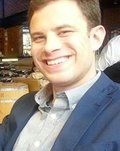 Reflective practice among language teachers is becoming increasingly recognized as a powerful means of discovering and evaluating what we do in the classroom. However, because teachers’ beliefs about what happens in their classrooms are often very distant from the reality, teachers’ reflections often risk being wholly subjective and unreliable. While reflective practitioners yearn to be more objective in their reflections, frameworks have only recently been developed which give teachers the evidence-based techniques they need to gain a full picture of their practice. Using examples taken from my own research, this workshop will introduce one such framework for reflective practice.
Reflective practice among language teachers is becoming increasingly recognized as a powerful means of discovering and evaluating what we do in the classroom. However, because teachers’ beliefs about what happens in their classrooms are often very distant from the reality, teachers’ reflections often risk being wholly subjective and unreliable. While reflective practitioners yearn to be more objective in their reflections, frameworks have only recently been developed which give teachers the evidence-based techniques they need to gain a full picture of their practice. Using examples taken from my own research, this workshop will introduce one such framework for reflective practice.
Farrell’s (2015) framework for reflecting on practice provides TESOL professionals with a thorough and easy-to-follow guide for data-driven reflection by establishing five stages of the reflection process. Supported by data from one elementary EFL teacher’s own reflections, this workshop will explore each of Farrell’s five stages in detail. This workshop will also give attendees opportunities to sample some of the techniques discussed in each stage in the hopes that they may reveal something about their own practice, or at the very least, discover a new way of thinking and reflecting on their practice. While my own research demonstrated that following such a framework can reveal deep connections between the teacher-as-person and actual classroom practice, the goal of this workshop is to share tools for objective, and holistic reflection that attendees can test for themselves in their own contexts.
Brennand Kennedy is an EFL instructor from Calgary, Canada. He currently holds an assistant professor position at Dongshin University in Naju, Jeollanam-do, and he has also taught for many years in rural elementary schools in Hadong, Gyeongsangnam-do. Before starting at Dongshin University, Brennand completed his Master of Arts in Applied Linguistics (TESL) at Brock University in St. Catharines, Ontario, Canada. As part of his graduate program, he conducted research in the area of reflective practice under the supervision of Dr. Thomas Farrell. Brennand continues to be interested in reflective practice as well as issues of social and environmental justice in language teaching.
[TOP]
_______________
16:15ㅡ17:00
Research in Korea: What Counts and Who Counts What?
Kevin Kester
 This session will survey the various publishing indexes prioritized in Korea and offer general tips for publishing in high-impact journals and other venues. As international faculty members in Korean universities are increasingly expected to publish papers in high-impact journals, this session will be useful for all early-career faculty members (and those more established faculty) wanting to further develop their understanding of the academic publishing landscape.
This session will survey the various publishing indexes prioritized in Korea and offer general tips for publishing in high-impact journals and other venues. As international faculty members in Korean universities are increasingly expected to publish papers in high-impact journals, this session will be useful for all early-career faculty members (and those more established faculty) wanting to further develop their understanding of the academic publishing landscape.
The session will overview the role of originality, rigor, and scientific impact in defining top papers, including discussion of the related metrics of JCR ranking, Impact Factor, Cite Score, h-index, and the influence of research grants and international collaborators. Practical tips on publishing from the perspective of authors, editors, and peer reviewers will be provided, as well as tips for acquiring research grant funding, maintaining an online academic presence to disseminate the research, and research considerations for promotion to tenure.
Kevin Kester is a tenure-track assistant professor of International Education and Global Affairs at Keimyung University in Daegu. He completed his postdoc and PhD at the University of Cambridge and regularly consults with UNESCO in Seoul. Kevin has published more than 40 peer-reviewed articles and book chapters in international and domestic venues — including SSCI, Scopus, and KCI publications — and has acquired research funding in excess of $250,000 in his early career. He has worked in Korea since 2007.
[TOP]
_______________
14:00ㅡ14:45
Classroom Anthropology: An Exploration of Culture and Class Management
ㅡ Jeff Shelley
 A Government. A Religion. A Nation. Comic Con. A Familial Household. A Group of Friends. Every one of these collectives will develop certain habits, customs, and traditions of its own.
A Government. A Religion. A Nation. Comic Con. A Familial Household. A Group of Friends. Every one of these collectives will develop certain habits, customs, and traditions of its own.
A Class. Whether consciously recognized or simply unnoticed, every class we teach is bound to develop its own unique culture. This is organic. If students behave well and put forth academic effort in the promise of receiving prizes or accolades, then their educator has created a meritocracy, perhaps even an economy: If pupils are comfortable arriving to class late every day, then a ritual has been established. Culture manifests itself in all social groups with or without the intentional participation of its human constituents. It is happening right now in our classes, which offers us a fantastic opportunity to inspire our students!
This interactive presentation is designed to challenge the traditional concept of what class management is composed of, what it should be, and also explores what class management has the potential to become. Part PowerPoint show and part workshop, this training session shows teachers how to take advantage of certain mechanisms of anthropology and effectively insert them into the classroom infrastructure. Though the aesthetics focus more on early childhood education, the ideas shared can be implemented amongst any age group.
Jeff Shelley has been teaching English as a foreign language for over a decade. He has been employed at numerous language academies throughout Korea in the capacity of teacher, head English teacher, and curriculum developer. He also worked as an EFL professor at Kaplan International College in New York City. After a career educating students of every age and numerous nationalities, he currently works as a freelance consultant and teacher trainer.
[TOP]
_______________
15:00ㅡ15:45
A (Hopefully Productive) Discussion on Native-Speakerism in Korea
ㅡ Michael Griffin
 In this discussion-focused session, we will tackle the issue of native-speakerism through a series of small- and whole-group discussions. Audience members will be asked to reflect on their experiences related to native-speakerism. Questions to be considered include “What is native-speakerism?” and “How does native-speakerism impact our field?” Considerable attention will be paid to the impact of native-speakerism on students, teachers, and the field itself. Questions not to be discussed include “Does native-speakerism exist in the world?” and “Is there native-speakerism in Korea?” Participants can expect to clarify their thinking and gain some insights on native-speakerism. Participants can also expect to hear and share ideas for combating native-speakerism in South Korea.
In this discussion-focused session, we will tackle the issue of native-speakerism through a series of small- and whole-group discussions. Audience members will be asked to reflect on their experiences related to native-speakerism. Questions to be considered include “What is native-speakerism?” and “How does native-speakerism impact our field?” Considerable attention will be paid to the impact of native-speakerism on students, teachers, and the field itself. Questions not to be discussed include “Does native-speakerism exist in the world?” and “Is there native-speakerism in Korea?” Participants can expect to clarify their thinking and gain some insights on native-speakerism. Participants can also expect to hear and share ideas for combating native-speakerism in South Korea.
Michael Griffin has been involved with English education for nearly 20 years. His first conference presentation was in 2009 at the KOTESOL International Conference, and since then, he has presented over 60 times, in 7 countries. Michael has worked as a teacher, teacher-trainer, trainer-trainer, online instructor, curriculum developer, substitute teacher, assistant director, and mentor. Intercultural awareness, world Englishes, curriculum development, teacher development, and reflective practice are some of his main interests. Michael currently teaches at Chung-Ang University in Seoul and does teacher education work online for World Learning and the New School. He blogs at http://eltrantsreviewsreflections.wordpress.com
[TOP]
_______________
16:15ㅡ17:00
Teaching Content in the ESL Classroom
ㅡ Phillip G. Schrank, Maria Lisak, & Arlo Matisz
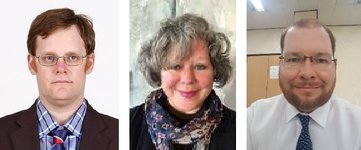 Teaching content in English? Join the Content-Based Instruction roundtable discussion, intended for teachers of content (social sciences, education, math, English literature, etc.). Regardless of the age of learners, attendees are invited to introduce themselves (basics, school/teaching info) and talk about how content is taught in their classroom. Participants are encouraged to bring any materials (for example, a list of helpful books or articles, examples of success or failure) to contribute to the discussion. This discussion shares ideas and debates different approaches to teach content. Content-Based Instruction (CBI), also known as Content and Language Integrated Learning (CLIL), or English as a Medium of Instruction (EMI), are methodologies used to integrate the dual purposes of teaching language and content at the same time.
Teaching content in English? Join the Content-Based Instruction roundtable discussion, intended for teachers of content (social sciences, education, math, English literature, etc.). Regardless of the age of learners, attendees are invited to introduce themselves (basics, school/teaching info) and talk about how content is taught in their classroom. Participants are encouraged to bring any materials (for example, a list of helpful books or articles, examples of success or failure) to contribute to the discussion. This discussion shares ideas and debates different approaches to teach content. Content-Based Instruction (CBI), also known as Content and Language Integrated Learning (CLIL), or English as a Medium of Instruction (EMI), are methodologies used to integrate the dual purposes of teaching language and content at the same time.
Participants will share their favorite teaching practices, what works and doesn’t work in South Korean classrooms, and strategies for getting difficult concepts across without using the students’ first language. Are your classes theme-based, where topics or themes are integrated into language skills? Is your classroom content-focused, turning it into what CBI scholars call sheltered instruction? Or does your classroom use adjunct instruction, where collaboration between content instructors and language teachers is essential. What's worked in your classroom? How do you support learning content and English language? These questions will guide the discussion during this session. Sharing experiences with each other can support our teaching practice and help to make each others’ content classroom better.
Phillip Gary Schrank is an assistant professor in the Department of Political Science and Diplomacy at Chosun University in Gwangju. He has an MA in ESL from Arizona State University and is ABD for a PhD in International Relations from Korea University’s Graduate School of International Studies. His main research interests lie in the realm of international relations, but he is still keenly aware of the importance of learning and understanding TESOL. He is a lifetime member of KOTESOL and currently serves as Gwangju Chapter’s treasurer. You can find more information, including contact information at www.pgschrank.com.
Maria Lisak teaches administration and welfare at Chosun University. She is a lifetime member of KOTESOL and currently serves as the Social Justice (Critical Educators in Korea) Special Interest Group's online moderator and the Nominations and Elections Committee Chair. She is an active Gwangju-Jeonnam Chapter member committed to reflective teaching practices. She is currently working on her EdD from Indiana University in literacy, culture, and language education.
Arlo Matisz is an assistant professor of economics at Chosun University. Before this, he taught English writing for four years in the ESL department of the same university. He holds an MA in economics from the Vancouver School of Economics at UBC. In one way or another, he has taught off and on for over 20 years. He is also a news anchor for the local foreign language public radio station, GFN.
[TOP]
_______________
14:00ㅡ14:45
Learning about Refugees from Syria & Yemen: Lesson Plans for Korean Learners
ㅡ Matkhiya Usmonova & Maria Lisak
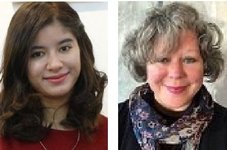
Part I: The impact of the Syrian civil war on Syrian children`s education.
Today, there are more than 2.2 billion children on Earth. Nearly two billion of these live in developing countries. However, one of the most challenging countries is Syria, where children can not enjoy the same rights or conditions of life as their Western counterparts. In this 20-minute session, we will take a look at education in Syria. Social problems such as child labor, child marriage, and sexual violence show how war and poverty are impacting children`s learning and their access to education. Before illustrating Syrian children`s life during the Syrian civil war, we`ll start with heart-touching activities such as sharing and discussing several kinds of images with as many people as possible. This session offers an opportunity for participants to know more about Syrian children and simultaneously to differentiate them from the kids who live in good conditions. (Matkhiya Usmonova)
Part II: South Korean Students Discuss the Yemeni Refugee Crisis
The presenter introduces her Korean university students' attitudes towards Yemeni refugees in Jeju. Students chose a discussion topic on a current event which had both administrative and welfare aspects to analyze. Students shared their opinions in small groups about the Yemeni refugees, and one student self-selected to do a research project on this issue. The teacher practitioner shares how learners tap into personal and societal opinions while offering support and challenge to each others opinions. (Maria Lisak)
Matkhiya Usmonova is from the Republic of Uzbekistan. Presently, she is a student at Chonnam National University, majoring in English language and literature. In addition to her studies, she does volunteer work for programs in the Children`s English Library, Gwangju Children`s Home, UNESCO, and the Gwangju News. She habitually strives to improve herself personally and educationally, and tries to learn from her own mistakes. With all her heart, she is quite grateful for her meaningful, loving life. Email: matkhiya98@gmail.com
Maria Lisak teaches administration and welfare at Chosun University. She is a lifetime member of KOTESOL and currently serves as the Social Justice (Critical Educators in Korea) Special Interest Group's online moderator and the Nominations and Elections Committee Chair. She is an active Gwangju-Jeonnam Chapter member committed to reflective teaching practices. She is currently working on her EdD from Indiana University in literacy, culture, and language education.
[TOP]
_______________
15:00ㅡ15:45
Peacebuilding Education in Posttruth Times: Lessons from the Work of Betty A. Reardon (Research Report)
ㅡ Kevin Kester
 Peacebuilding education has grown significantly since the 1970s. It is included within global curricular programs of schools, international agencies, and non-governmental organizations. The trans-disciplinary field draws on theory, research and pedagogy from other similar educational endeavors, including but not limited to human rights education, intercultural education, sustainable development education, and social justice education. Transnational conferences and declarations of the United Nations and civil society organizations, such as the Global Campaign for Peace Education and the International Institute of Peace Education, support the movement. Key within the development of the academic and pedagogic field has been the significant work of Betty Reardon, who remains an instrumental scholar contributing to peace and human rights education after seven prolific decades in the field.
Peacebuilding education has grown significantly since the 1970s. It is included within global curricular programs of schools, international agencies, and non-governmental organizations. The trans-disciplinary field draws on theory, research and pedagogy from other similar educational endeavors, including but not limited to human rights education, intercultural education, sustainable development education, and social justice education. Transnational conferences and declarations of the United Nations and civil society organizations, such as the Global Campaign for Peace Education and the International Institute of Peace Education, support the movement. Key within the development of the academic and pedagogic field has been the significant work of Betty Reardon, who remains an instrumental scholar contributing to peace and human rights education after seven prolific decades in the field.
Reardon’s work has responded to numerous global crises during the period of her foundational contributions. This presentation will examine several of Reardon’s seminal works and the contents of her correspondence letters between 1969 and 2001, as archived in the Betty Reardon Papers Special Collection at the University of Toledo. Examining how Reardon intellectually tangled with the crises of the Cold War could assist peace scholars today in dealing with the contemporary challenges and contradictions of teaching for peace in the posttruth era. Theoretical and pedagogical implications will be offered.
Kevin Kester is a tenure-track assistant professor of International Education and Global Affairs at Keimyung University in Daegu. He completed his postdoc and PhD at the University of Cambridge and regularly consults with UNESCO in Seoul. Kevin has published more than 40 peer-reviewed articles and book chapters in international and domestic venues — including SSCI, Scopus, and KCI publications — and has acquired research funding in excess of $250,000 in his early career. He has worked in Korea since 2007.
[TOP]
_______________
16:15ㅡ17:00
Using Critical Language Pedagogy in the EFL Classroom
ㅡ Luis Roberto Caballero Orozco
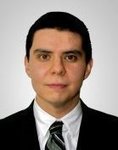 In 1968, Brazilian educational theorist Paolo Freire called for a new approach to teaching. By employing what he referred to as a “critical pedagogy,” teachers can transform classrooms into forums for student empowerment and social change. In a critical pedagogy classroom, educators put students on a path toward finding their own voices on complex issues that affect their daily lives. Students trace social inequalities to their root causes, identify how these issues impact their own communities, and advocate for action that ensures a more just, inclusive tomorrow.
In 1968, Brazilian educational theorist Paolo Freire called for a new approach to teaching. By employing what he referred to as a “critical pedagogy,” teachers can transform classrooms into forums for student empowerment and social change. In a critical pedagogy classroom, educators put students on a path toward finding their own voices on complex issues that affect their daily lives. Students trace social inequalities to their root causes, identify how these issues impact their own communities, and advocate for action that ensures a more just, inclusive tomorrow.
Since the 1970 English translation of Freire’s Pedagogy of the Oppressed, both it and subsequent texts on critical pedagogy have become ubiquitous in teacher education programs. Many linguists and educators have expanded on this framework to adopt it for the EFL classroom, dubbing it “critical language pedagogy" (CLP). Although research on CLP in Korean contexts is still growing, Crookes (2010) demonstrated that Korean high school students welcomed opportunities to engage in critical, non-authoritarian dialogues with their teachers despite stereotypes about East Asian cultures. Furthermore, Ooiwa-Yoshizawa (2012) argues that CLP educators ought to highlight changing norms in English language usage as well as heighten student awareness of marginalized populations’ lived experiences through classroom activities. DeWaelsche (2015) echoes these sentiments, finding that Korean university students will successfully overcome perceived socio-cultural limitations to critical dialogue, thereby developing critical thinking skills.
Participants in this workshop will explore ways to use CLP in their classrooms. Through collaborative activities, participants will brainstorm and create a sample lesson with this approach.
Biodata: Born in Mexico and educated in the United States, Luis has many experiences teaching the English and Spanish languages in high schools, universities, non-profits, and corporations around the world. Luis holds a BA in speech and linguistics as well as a MA Ed in higher education. He has a passion for teaching public-speaking skills to EFL/ESL learners. Luis has been in Korea since 2015. He is currently a foreign language instructor at the Ulsan National Institute of Science and Technology (UNIST). He previously served on the local KOTESOL chapter council and is this year’s program director for KOTESOL’s upcoming international conference.
[TOP]
_______________
17:15ㅡ18:00 FEATURED SESSION (Room 835)
What Are We Teaching For?!
ㅡ Jocelyn Wright (Mokpo National University)
 The title of this year’s Gwangju-Jeonnam Regional Conference is "Are We There Yet?" It is a provocative attempt to get us to stop and contemplate our present teaching endeavors. While it is possible that some of us do this regularly, other teachers may find that other aspects of their work preoccupy them more. Yet, for successful teaching and learning outcomes, when planning, implementing, and assessing activities, it is important to first be aware of our end goals. Aims, of course, may be various and pertain to either desired general education or subject matter-specific outcomes.
The title of this year’s Gwangju-Jeonnam Regional Conference is "Are We There Yet?" It is a provocative attempt to get us to stop and contemplate our present teaching endeavors. While it is possible that some of us do this regularly, other teachers may find that other aspects of their work preoccupy them more. Yet, for successful teaching and learning outcomes, when planning, implementing, and assessing activities, it is important to first be aware of our end goals. Aims, of course, may be various and pertain to either desired general education or subject matter-specific outcomes.
In this interactive workshop, we will discuss what aims are and how they differ from objectives and ideals. Then participants, considering their local teaching contexts, will be encouraged to raise their aims to the level of consciousness. Through this exploration, they will be led to reflect upon and question the quality of their current teaching aims. It is hoped that they will even reassess some of them in light of the framework presented and the discussions that ensue.
Jocelyn Wright works at Mokpo National University. She has been teaching practical and content-based English at her university in Korea for ten years. She has also taught in Quebec, the Dominican Republic, and France. Her educational background is in linguistics and education. In addition to being a member of the Gwangju-Jeonnam Chapter, she co-facilitates the national Social Justice (Critical Educators in Korea) Special Interest Group as well as the local branch of the Reflective Practice Special Interest Group. Her many interests include professional development, critical pedagogy, and content-based teaching.
[TOP]
________________________________________
[15:45ㅡ16:15] POSTER SESSIONS
Ready, Action! Implementing Story Drama into EFL English Classrooms
ㅡ Ahra Cho
 Reading storybooks has proven to be one of the best ways to promote second language acquisition in young learners. Also, teaching English in a creative way can free students from the pressure and stress of test-focused language learning ubiquitous in the South Korean context. A combination of storybooks and drama techniques, "story drama," enables kids to see beyond the books by creating their own stories while role-playing and improvising the originals. Through story drama, teachers and parents can take story reading to a new level by giving young learners chances to use their creative imagination, which can accelerate the language learning process.
Reading storybooks has proven to be one of the best ways to promote second language acquisition in young learners. Also, teaching English in a creative way can free students from the pressure and stress of test-focused language learning ubiquitous in the South Korean context. A combination of storybooks and drama techniques, "story drama," enables kids to see beyond the books by creating their own stories while role-playing and improvising the originals. Through story drama, teachers and parents can take story reading to a new level by giving young learners chances to use their creative imagination, which can accelerate the language learning process.
This poster looks at the impact of story drama in young learners’ English classrooms in South Korea. Attendees will be guided through the major issues and benefits that have arisen as a result of story drama and introduced to the obstacles that English teachers have when teaching story drama in EFL settings. Future directions will be displayed that aim to provide English teachers with practical ways that can adopt story drama methodology with English storybooks in their classrooms. This poster session will help to gain a deeper understanding of story drama teaching skills and its influences on English language education in South Korea, as well as an increased awareness of current trends of teaching English creatively using story drama.
Ahra Cho is an instructor of English book storytelling and MA student in English materials development at the International Graduate School of English, Seoul, Korea. She holds degrees in English and child education. She has taught English through reading to students from very young learners to high school. She also worked as an English storyteller for a long time. Her research interests in ELT include early literacy, teaching synthetic phonics, and story drama.
[TOP]
_______________
"Johnny and Joshua Coming to Korea"
ㅡ EJ Asare
 Johnny and Joshua Coming to Korea is a new children's picture book that celebrates the commonalities between the Ghanaian and Korean cultures. Joshua lives a happy life in Ghana with his father and pet bird, Johnny. One day his father informs him they must move to South Korea but cannot bring his best friend, Johnny. This beautifully illustrated book follows Joshua as he navigates his new country's culture. He discovers that people are the same all over the world.
Johnny and Joshua Coming to Korea is a new children's picture book that celebrates the commonalities between the Ghanaian and Korean cultures. Joshua lives a happy life in Ghana with his father and pet bird, Johnny. One day his father informs him they must move to South Korea but cannot bring his best friend, Johnny. This beautifully illustrated book follows Joshua as he navigates his new country's culture. He discovers that people are the same all over the world.
It is a universal message that will resonate with readers.
This book encompasses friendship, love, culture, family, food, song, dance, and diversity between Ghana and South Korean cultures. It is a perfect read to increase cultural awareness and diversity for students of all age groups. Johnny and Joshua Coming to Korea is the first of a series of books that will follow Johnny and Joshua as they explore different cultures and learn to "be brave." (This book is currently available in South Korea for 10,000 won. Find out more at https://www.facebook.com/groups/2222948134629412/ )
EJ Asare is an African-American living and teaching English in South Korea. She has many years as a business professional and holds an MBA from Saint Peter’s University. After teaching in an elementary school in Gwangyang, South Korea for more than five years, she decided to create a children’s picture book about diversity and acceptance. EJ believes that native English teachers are ambassadors for their countries.
She initiated this book project to highlight the positive similarities that exist between the Ghanaian and South Korean cultures. The first book, Johnny and Joshua Coming to Korea, introduces the characters and shows the transition from a happy life in Ghana to a new, uncertain life in Asia. It shows positive aspects of both cultures. The second book in this series will expand the concept to show the similarities between South Korean and many other African cultures. Only through exposure of different cultures and people will the next generation learn to embrace and accept differences.
[TOP]
_______________
Game Making: Game Templates to Mix It Up in Class
ㅡ Maria Lisak
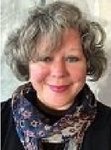 What’s in your game-making teacher’s bag? This poster shares some generic game shells and templates. The lesson plans allow teachers to plug in new content to create the repetitive practice needed for language practice, but in a fun way! Game templates let educators include class tasks and goal content while increasing involvement of students to achieve learning tasks. This poster outlines the steps of different games; handouts of instructional tools to set up games for classrooms at school are also provided. Participants will be able to make a game within 10 minutes and learn dozens of ways to customize it to their classroom.
What’s in your game-making teacher’s bag? This poster shares some generic game shells and templates. The lesson plans allow teachers to plug in new content to create the repetitive practice needed for language practice, but in a fun way! Game templates let educators include class tasks and goal content while increasing involvement of students to achieve learning tasks. This poster outlines the steps of different games; handouts of instructional tools to set up games for classrooms at school are also provided. Participants will be able to make a game within 10 minutes and learn dozens of ways to customize it to their classroom.
Maria Lisak, MSEd, likes to create safe environments to encourage and support learners as they risk-take and grow. Her instructional designs are dynamic, energetic, and lively but also have meditative and reflective components. By thoughtfully listening to learners’ framing of their own learning process, she focuses on authenticity and transformation while fostering a fun, cathartic adventure for them to develop new skills. Change in the classroom, she feels, is a constant to be embraced and celebrated. More at https://koreamaria.typepad.com/gwangju/2011/08/my-instructional-tojang.html
[TOP]
_______________
A to Z of Social Justice
ㅡ Social Justice Special Interest Group
 This poster session is an interactive display of a 26-week-long thread on the Social Justice SIG's Facebook group. The tread, "Social Justice A to Z," asked members what their favorite social justice word was (beginning with the designated letter for that week), and each week respondants would answer with a word and give an explanation (i.e., 1st week: "A," 2nd week: "B," etc.). Attendees may add their own comments/suggestions to the alphabet of responses already made. This display was earlier showing at the Daejeon-Chungcheong Chapter's Thanksgiving Symposium at the initiative of the late Mitzi Kaufman of the Social Justice SIG.
This poster session is an interactive display of a 26-week-long thread on the Social Justice SIG's Facebook group. The tread, "Social Justice A to Z," asked members what their favorite social justice word was (beginning with the designated letter for that week), and each week respondants would answer with a word and give an explanation (i.e., 1st week: "A," 2nd week: "B," etc.). Attendees may add their own comments/suggestions to the alphabet of responses already made. This display was earlier showing at the Daejeon-Chungcheong Chapter's Thanksgiving Symposium at the initiative of the late Mitzi Kaufman of the Social Justice SIG.
[TOP]
_______________
Where Have We Been?
ㅡ Bryan Hale & David Shaffer
 This poster/display session focuses on the conference theme, "Are We There Yet?" by taking a look back and reflecting on where we have been. On display will be posters of past KOTESOL ELT events and ELT materials related to ELT in Korea over the past few decades.
This poster/display session focuses on the conference theme, "Are We There Yet?" by taking a look back and reflecting on where we have been. On display will be posters of past KOTESOL ELT events and ELT materials related to ELT in Korea over the past few decades.
Bryan Hale is the president of Gwangju-Jeonnam Chapter of KOTESOL and teaches at Yeongam High School in Yeongam, Jeonnam.
David Shaffer is a longtime educator in Korea and national president of KOTESOL He is also chairman of the board at Gwangju International Center.
[TOP]
![]()


